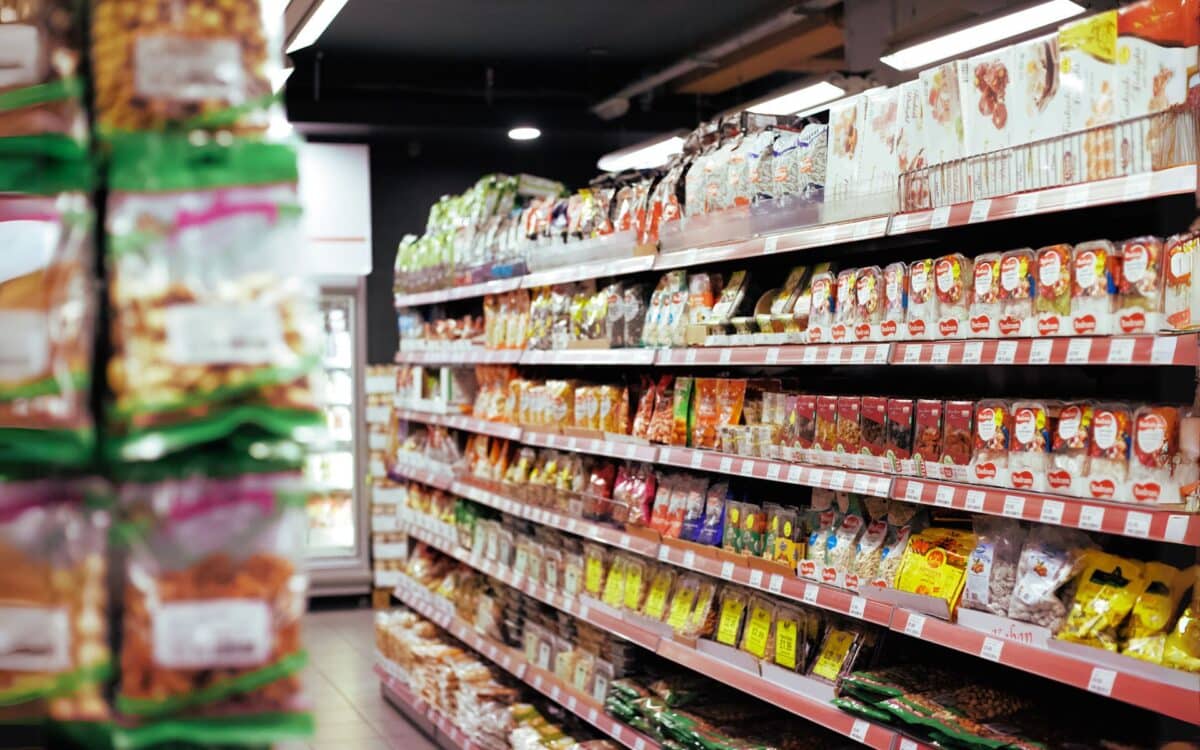Retailers are warning of significant increases in food prices in the coming months, as the effects of budget tax hikes continue to impact the sector. The British Retail Consortium (BRC) forecasts a rise in food prices, adding pressure to household budgets already stretched by other rising costs. As the sector grapples with new financial challenges, shoppers will likely feel the strain of higher food prices in the near future.
Impact of Budget Measures on Retailers
Recent fiscal policies have sparked significant concern within the retail industry, with the BRC predicting a 4.2% rise in food prices. Retailers are facing a host of new financial burdens, including increased National Insurance contributions and new packaging levies, which will undoubtedly affect their bottom lines.
These measures have left many businesses struggling, especially as they prepare for the higher costs to take effect in 2025.
Financial Pressures on Retailers
- National Insurance contributions: A substantial increase in employer National Insurance contributions will cost retailers billions.
- National Living Wage: The rise in the minimum wage further increases operating costs for many businesses.
- Packaging levies: Additional levies on packaging are adding to the financial strain in an already tough economic environment.
Despite these challenges, retailers are working hard to maintain profitability. Tesco, for example, has emphasised its commitment to maintaining low prices, positioning itself as one of the UK’s cheapest grocery retailers.
Consumer Impact
Consumers are expected to face the brunt of these tax hikes in the form of higher food prices. With inflation at a high level, especially in the grocery sector, the cost of living will continue to climb.
The BRC’s chief executive, Helen Dickinson, highlighted the inevitability of rising prices, noting that food inflation is set to increase by an average of 4.2%. This will add further pressure on families already grappling with higher utility bills and increased council tax.
Retail Sector’s Performance Amid Rising Costs
Despite the rising costs, many top retailers have reported solid performance over the festive period. Tesco, for example, had its best market share performance since 2016, and M&S also saw notable growth in its food sales. However, the future outlook remains uncertain, with many businesses warning of a “challenging market backdrop.”
Retail Growth Despite Challenges
- Tesco: Achieved significant growth, particularly in food sales, reflecting its ongoing efforts to improve quality and reduce prices.
- M&S: Experienced strong food sales, but faces considerable challenges due to higher costs and inflation.
- Greggs: Struggled with a weaker market environment, which dampened its performance.
The industry is also concerned about the broader economic landscape, with analysts warning of potential difficulties ahead due to the ongoing strain on public finances and currency fluctuations.
Rising Grocery Prices and Inflation
The annual rate of grocery price inflation has surged to 3.7%, the highest since March, showing a clear upward trend in food costs. The BRC’s projections suggest that the second half of the year will see continued inflation across both food and non-food items.
Retailers have been vocal about the strain these rising costs are placing on their operations and are calling on the government to take action to reduce the burden.
- Grocery price inflation: Reached 3.7% in December, reflecting broader inflationary trends.
- Retailer concerns: Many businesses are urging the government to reconsider its fiscal policies to prevent further strain on the sector.
Retailers Brace for Future Challenges
The retail industry remains cautious about the future as fiscal policies evolve. Despite strong Christmas sales, Tesco and M&S are preparing for the financial impact of upcoming tax changes. The BRC continues to advocate for measures that could alleviate pressure on businesses, such as reforms to business rates. With a combination of external economic pressures and internal cost increases, the retail sector faces a challenging year ahead.
Forecast for 2025
- Retail forecast: Retailers are bracing for higher operational costs in 2025.
- Budget impact: Businesses are concerned that they will be forced to pass on the increased costs to consumers.
- Call for reforms: Retailers are urging the government to reconsider its approach to business rates and tax levies.
The retail sector is walking a fine line between managing rising costs and maintaining profitability, with consumers poised to feel the effects of these changes. Rising food prices are becoming an unavoidable reality for UK shoppers, with higher taxes and inflation set to continue putting pressure on household budgets.









